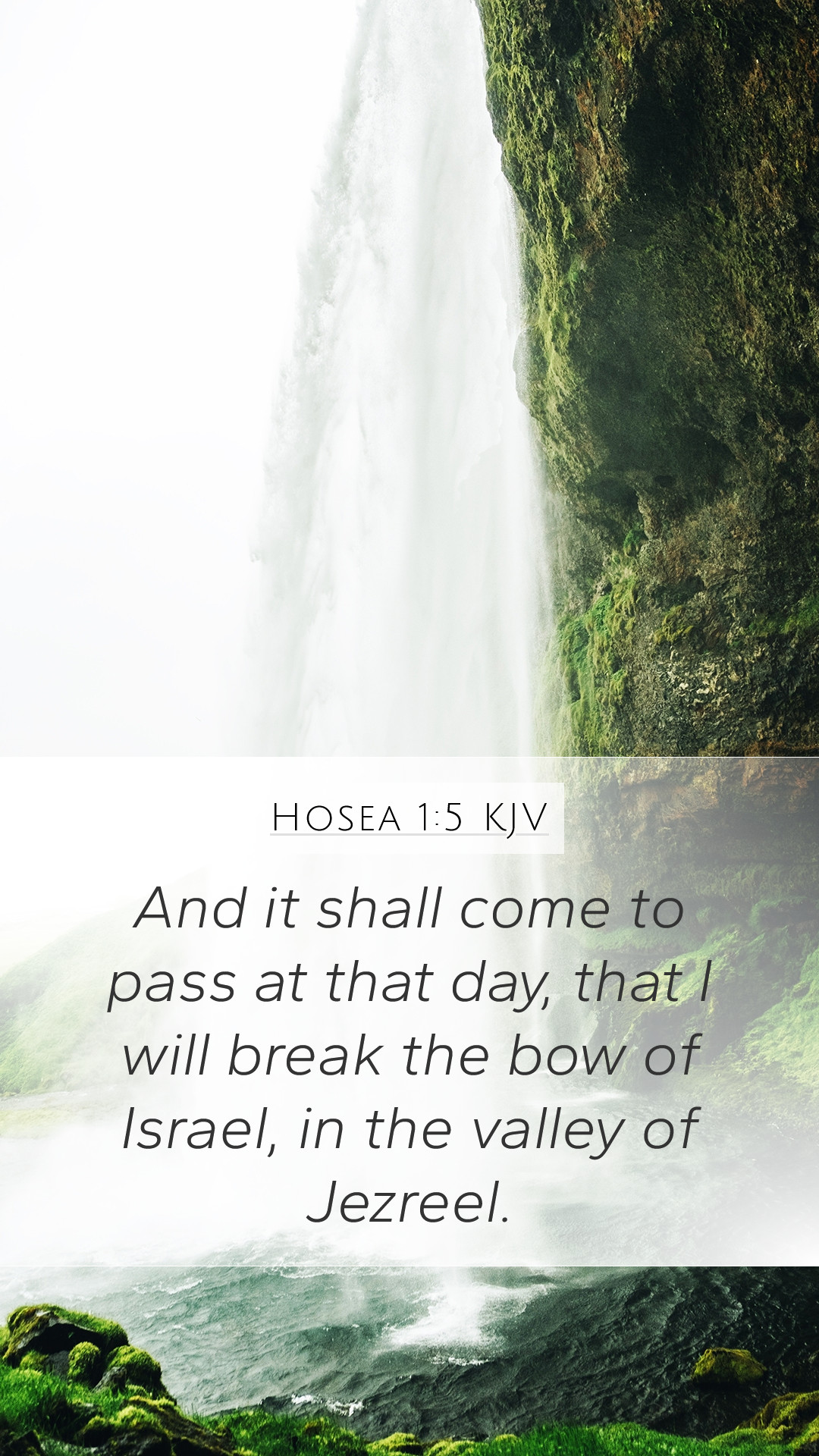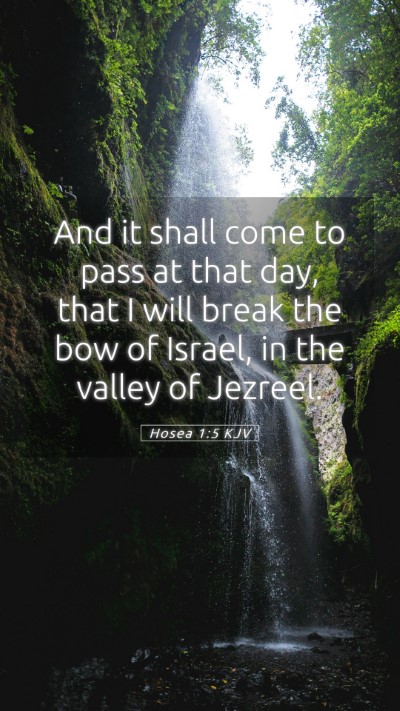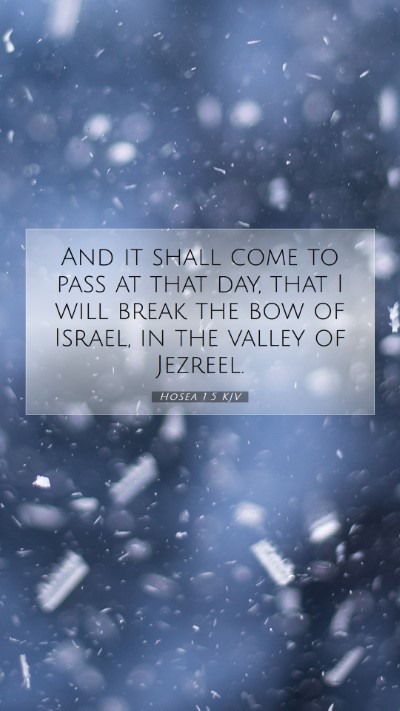Old Testament
Genesis Exodus Leviticus Numbers Deuteronomy Joshua Judges Ruth 1 Samuel 2 Samuel 1 Kings 2 Kings 1 Chronicles 2 Chronicles Ezra Nehemiah Esther Job Psalms Proverbs Ecclesiastes Song of Solomon Isaiah Jeremiah Lamentations Ezekiel Daniel Hosea Joel Amos Obadiah Jonah Micah Nahum Habakkuk Zephaniah Haggai Zechariah MalachiHosea 1:5 Meaning
What is the meaning of Hosea 1:5?
And it shall come to pass at that day, that I will break the bow of Israel, in the valley of Jezreel.
Hosea 1:5 Bible Verse Meaning
Understanding Hosea 1:5
Hosea 1:5 states: "And it shall come to pass at that day, that I will break the bow of Israel in the valley of Jezreel." This verse serves as a profound declaration of divine judgment against Israel, symbolizing both a historical context and a powerful spiritual lesson.
Verse Context and Background
The book of Hosea, one of the Minor Prophets, focuses on God’s relationship with Israel, often depicted as a troubled marriage. Hosea’s prophetic ministry occurs during a period of significant moral decline and idolatry in Israel. The valley of Jezreel is a location associated with both historical events and prophetic significance, representing the battleground where God's judgment will unfold.
Bible Verse Commentary
- Matthew Henry: Henry emphasizes the seriousness of God’s rebuke, suggesting that the breaking of the bow represents the incapacitation of Israel’s military power and protection. It illustrates how divine judgment prevails over any earthly strength.
- Albert Barnes: Barnes notes that this prophecy indicates the loss of Israel's autonomy, suggesting that their bow, symbolizing strength and defense, would be rendered useless. This serves to remind the people of their reliance on God instead of their own might.
- Adam Clarke: Clarke expands on the imagery, interpreting the valley of Jezreel as a locus of divine retribution. He correlates this prophecy with historical events in Israel’s history and frames it within the broader narrative of God’s covenant with His people.
Key Themes and Interpretations
- Divine Judgment: The phrase “I will break the bow” signifies a calamitous time when God’s protection is withdrawn, allowing Israel's enemies to prevail. This can be interpreted as a warning against sin and rebellion against God.
- Military Connotation: The bow is a weapon of war, symbolizing Israel's power. Breaking it indicates not just physical defeat but a spiritual awakening that points to the futility of relying on armaments over divine guidance.
- Historical Context: The historical backdrop includes countless conflicts, portraying how Israel faced invasions from surrounding nations, particularly Assyria, showing the fulfillment of prophecies of destruction that were warned against by prophets like Hosea.
Lessons for Today
Hosea 1:5 reminds contemporary believers of the importance of aligning with God’s will and avoiding the pitfalls of self-reliance. It emphasizes that the strength derived from worldly sources is temporary and ultimately may lead to judgment if it is not rooted in faithfulness to God.
Application of Scripture
In practical terms, believers can apply the teachings of this verse by:
- Engaging in personal Bible study to understand their relationship with God.
- Participating in Bible study groups that emphasize accountability and spiritual growth.
- Reflecting on God's historical judgments to foster a deeper understanding of Scripture and its relevance today.
Cross References
- Isaiah 9:15-17: Discusses the consequences of leadership failure, echoing themes seen in Hosea.
- Jeremiah 49:36: Prophetic words regarding the destruction of enemies reflect divine judgment.
- Ezekiel 39:3: A prophecy about breaking bows highlights God's intervention in human conflict.
Conclusion
Hosea 1:5 serves as a powerful reminder of the serious repercussions of turning away from God. Through this verse, readers gain a deeper Bible verse understanding of the importance of relying on divine strength rather than human capacity. This scripture also calls believers to engage with God’s word actively, making use of various Bible study tools and resources to explore meanings and applications in their lives.


